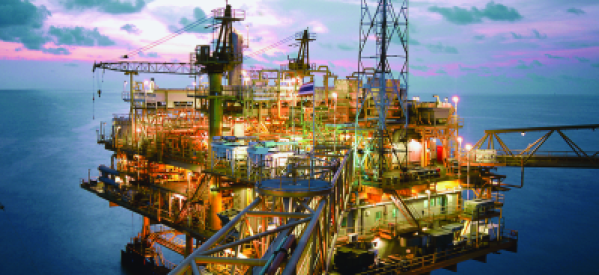The heavyweights aim to take advantage of Thailand’s proposed opening in gas distribution

Chevron and Royal Dutch Shell have expressed interest in participating in natural-gas distribution in Thailand, following the regulator’s plan to open up the industry.
Energy Regulatory Commission member Pallapa Ruangrong yesterday said both foreign companies had said they were interested in exporting liquefied natural gas (LNG) to the Kingdom.
Speaking at the regulator’s “Interconnectivity & Cross-Border Trade” seminar, she said the ERC is drafting the regulations governing competition in the natural gas trade, which are expected to be submitted for the commission’s consideration in the middle of the year.
The regulations will guarantee fair competition in Thailand, as the industry has been dominated solely by PTT up until now.
The regulations will attract new players to the market, which would lead to a decline in retail prices and benefit the country, she added.
The regulations will subject all companies transmitting gas through the nation’s pipelines to the same fees. They will also be subject to the same storage fee at the country’s LNG Terminal, and power plants and industrial firms will be able to freely choose to buy gas from any operator.
The regulations are being drafted at a time when global LNG prices are expected to decline due to more shale-gas reserves being utilised in the US. The US is now making it a priority to sell gas to its free-trade partners. Thailand is in the process of joining the Trans-Pacific Partnership, which encompasses the US and other countries in Asia-Pacific.
More players will guarantee that Thailand does not suffer from a gas shortage, as current reserves in the Gulf of Thailand are expected to last only 10 years. The current LNG price in Asia is US$15-$17 (Bt440-Bt503) per million British thermal units, while that in Europe is $11-$12, far higher than in the US where LNG is priced between $2 and $4.
The US price, even when adding the cost of $6.5 per million BTU for exporting the LNG, is competitive in the Asian market.
PTT’s monopoly has led to several criticisms. It earlier controlled the pipelines but the rights were taken away to the ERC after its privatisation. PTT has also been criticised for its ability to cope with the loss of natural gas supply from Myanmar, which forced some power plants to generate power with diesel and bunker oil which is more expensive than natural gas.
Phanu Suthirat, executive vice president of PTT, said yesterday that the company was notified of the annual maintenance of Yadana gas field in Myanmar a year in advance. As such, it cannot call for compensation or a 25 per cent discount of gas price, to cover the extra electricity generating cost. To ensure no disruption in power supply, PTT yesterday assured that it would sufficiently stock liquefied natural gas, bunker oil and diesel for electricity generation from April 5-13 during the Yadana gas field maintenance shutdown. Phanu also assured that from April 14, Yadana gas field will resume its operations and Myanmar’s gas supply of 1,100 million cubic feet per day would resume from the day onwards.
Yadana gas field will be shut down from April 5. Thailand consumes about 5,000 mcfpd a day. Myanmar’s gas supply is distributed daily to power plants (981 mcfpd), industrial plants (23 mcfpd) and gas stations (96 mcfpd).
At the energy seminar, ERC chairman Direk Lavansiri said the electricity fuel tariff (FT) from May through the rest of the year was likely to remain unchanged, thanks to the baht’s appreciation. “If the baht continues appreciating and there is no unexpected incident that may affect oil prices, the FT rate is likely to be unchanged from 52 satang per unit at present,” he said.
The seminar attracted officials of the energy regulators from Cambodia, Malaysia, Singapore and Vietnam, as well as representatives from global energy firms.
Direk said the strong baht had resulted in lower costs for fuel imports. Moreover, the collaboration among state and private parties to save energy in light of the supply disruption of natural gas from Myanmar during April 5 to 14 means the country has no need to import more diesel and bunker oil for electricity generation.
With cheaper fuels, the Bt6-billion compensation to the Electricity Generating Authority of Thailand (Egat) should also be paid up this year, said the ERC chief.
Egat had to shoulder some of the cost when the FT rate was not fully increased to cover higher generating costs.






